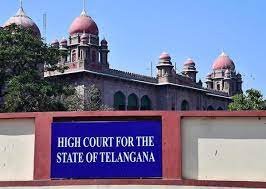On Thursday, the Delhi High Court made a ruling that bathing in a bathroom, whether it’s public with just a curtain or private with a door, is a “private act” where the person taking the bath expects privacy and not to be seen or watched.
Therefore, anyone caught peeping into a bathroom where a woman is bathing will be charged with voyeuristic behavior under Section 354C of the Indian Penal Code (IPC). Justice Swarana Kanta Sharma stated that it’s reasonable for a woman taking a bath in a closed bathroom to expect her privacy to be respected and not to be observed.
“The act of a perpetrator peeping inside the said bathroom will certainly be regarded as invasion of her privacy… The sexual integrity of every person has to be respected and any violation of the same should be dealt with a stern hand,” the Court observed.
The Delhi High Court’s Justice Sharma presided over an appeal filed by a convict known as Sonu @ Billa, who was convicted by the trial court for violating Section 354C of the IPC and Section 12 of the POCSO Act, 2012.
Sonu was sentenced to one year of rigorous imprisonment and a fine of 20,000 rupees. The case arose from a complaint by a minor girl in September 2014, alleging that Sonu would sexually stare at her and stand outside the bathroom while she bathed, making lewd remarks and gestures. Sonu’s lawyer argued that the victim bathed in an open, public bathroom similar to those found at holy rivers, water parks, swimming pools, or lakes.
Justice Sharma reviewed the case and determined that despite being located in an open area, the bathroom in question had walls and a concealed entrance behind a curtain, making it not an open public space.
“The argument of the learned counsel for the appellant that the act of taking bath by the victim in the present case, instead of being a ‘private act’ became a ‘public act’ is totally meritless. Merely because a structure which is being used as bathroom by a woman does not have a door but only a curtain and temporary walls and it is situated outside her house does not make it a public place and the contention that the act of taking bath by the victim became a ‘public act’ instead of being a ‘private act’ for the said reason has to be outrightly rejected,” the Court noted.
According to the court, upon examining the facts of the present case, it was found that the elements of Section 354C of the IPC were fully covered by the definition of ‘private act’ as outlined in Section 354C of the IPC along with Explanation 1.
Justice Sharma further stated that taking a dip in a religious body of water is not comparable to taking a bath in a closed bathroom with a female. Even if a woman is taking a bath in a public, open space, the court stated that there is a “reasonable expectation” that pictures or videos of her will not be taken or distributed.
As a result, the bench concluded that the accused’s actions constituted a violation of privacy, and the trial court order is without flaw. However, it overturned the conviction under POCSO because the prosecution was unable to prove that the victim was under the age of 18.
“In view thereof, impugned judgment dated 15.11.2021, to the extent of conviction of appellant under Section 12 of POCSO Act, is set aside… The impugned judgment dated 15.11.2021 and order on sentence dated 15.12.2021, insofar as they relate to conviction and sentencing under Section 354C of IPC, are hereby upheld,” the Court ordered.



